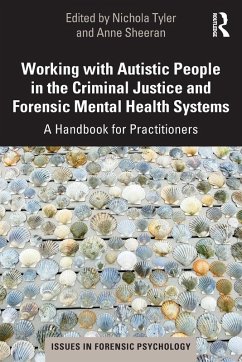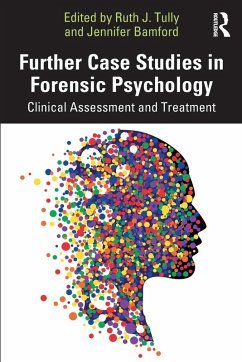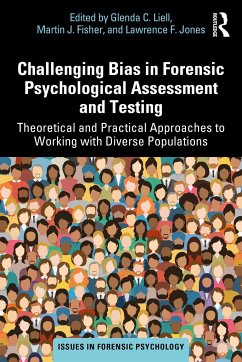
Broschiertes Buch
The Forensic Psychologist's Report Writing Guide
Versandkostenfrei!
Versandfertig in 1-2 Wochen

PAYBACK Punkte
29 °P sammeln!




The Forensic Psychologistâ s Reporting Writing Guide is the first book to provide both student trainees and practitioners with best practice guidance for one of the core skills of their role.
Sarah Brown is a Professor in the Centre for Research in Psychology, Behaviour and Achievement at Coventry University, UK. Erica Bowen was a Professor in the Centre for Research in Psychology, Behaviour and Achievement at Coventry University, UK and moved in 2016 to become Professor of Prevention of Violence and Abuse at the University of Worcester, UK. David Prescott is a practising forensic practitioner in New England, USA.
Produktdetails
- Verlag: Taylor & Francis Ltd
- Seitenzahl: 272
- Erscheinungstermin: 9. Mai 2017
- Englisch
- Abmessung: 234mm x 156mm x 15mm
- Gewicht: 426g
- ISBN-13: 9781138841512
- ISBN-10: 113884151X
- Artikelnr.: 48010529
Herstellerkennzeichnung
Libri GmbH
Europaallee 1
36244 Bad Hersfeld
gpsr@libri.de
Für dieses Produkt wurde noch keine Bewertung abgegeben. Wir würden uns sehr freuen, wenn du die erste Bewertung schreibst!
Eine Bewertung schreiben
Eine Bewertung schreiben
Andere Kunden interessierten sich für











